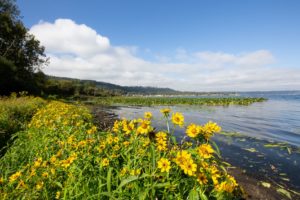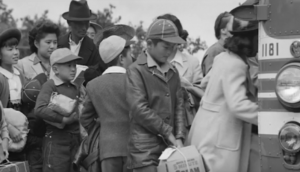Dear friends and neighbors,
Over the last weekend, the big story, after digging out from under all that snow, was the entire state moving to Phase 2 of the Healthy Washington reopening plan. This is great news for families and businesses across the state! Learn more about what Phase 2 means for you and your family. Even as we progress through the phases and more Washingtonians are vaccinated against COVID-19, please continue taking steps to protect yourself and others, such as wearing your mask, washing your hands, and physical distancing.
As the pandemic response continues around the state, the Legislature is continuing to move through the remote legislative process. Monday was policy committee cutoff, meaning any bills not necessary to implement the budget must have been voted out of policy committees to continue moving this year. The next deadline is fiscal committee cutoff on February 22 where bills with fiscal impacts must be voted out of fiscal committees. Today, I want to share an update on a few important bills that are moving this session.
Reducing Greenhouse Gas Emissions and Other Environmental Protections
Washingtonians have long demanded strong action to confront climate change, and the Legislature is stepping up. This session, two major proposals have been introduced to both reduce our state’s greenhouse gas emissions and stimulate our struggling economy in the wake of COVID-19.

HB 1091 Low Carbon Fuel Standard
The transportation sector makes up 45% of the greenhouse gas emissions in Washington. To take action on climate change, Rep. Joe Fitzgibbon has introduced a low carbon fuel standard (LFCS). If passed, Washington would join Oregon, California, and British Columbia in regulating our state’s single largest source of emissions. Enacting the LCFS would not only make our state cleaner and reduce emissions, but it would also spur economic activity and growth. Washington could become a leader in producing and exporting clean, green biofuels, which would mean the creation of sustainable, living wage jobs.
Another proposal, the Washington STRONG Act, sponsored by Rep. Debra Lekanoff, would authorize a series of “green” bonds, new financing tools that would stimulate the economy, create jobs, and help transition Washington to a clean economy. These recovery bonds would be financed by a per-ton price on carbon, generating a sustainable funding stream. The proposal has been constructed to minimize the impact on agricultural sectors, middle- and low-income households, and energy intensive and trade exposed businesses.
Other environmental bills still under consideration this session include:
- HB 1084: The Healthy Homes and Clean Buildings Act will help implement the 2021 Washington State Energy Strategy. Buildings represent 23% of Washington’s carbon footprint and are the state’s fastest growing source of greenhouse gas pollution. If passed, the bill will ensure utilities align their long-term plans with the state’s climate goals, provide local jurisdictions with the authority to adopt a stronger building code, expand services for low-income energy users to include conversion to clean energy, set high standards for wages and career development in the emerging clean energy workforce, and enable all utilities to provide customers with incentives for electric appliances.
 HB 1075: This bill requires rideshare companies to do their part to reduce greenhouse gas emissions. The Department of Ecology would collect data from rideshare companies on their miles driven and greenhouse gas emissions, and set reduction targets for the companies to meet.
HB 1075: This bill requires rideshare companies to do their part to reduce greenhouse gas emissions. The Department of Ecology would collect data from rideshare companies on their miles driven and greenhouse gas emissions, and set reduction targets for the companies to meet.- HB 1287: This bill builds a complete plan to ensure that our electric grid and our buildings will have the charging stations and power supply necessary to meet the growing demand for electric vehicles.
- HB 1050: This legislation goes farther than the regulations of hydrofluorocarbons (HFCs), powerful greenhouse gases that are mainly used for cooling and refrigeration, passed by the Legislature in 2019. It sets a maximum global warming potential threshold and applies regulations for ozone depleting substances to HFCs. It also directs the Department of Ecology to set up a refrigerant management program to safely manage and dispose of HFCs going forward.
Adding More Justice to our Child Welfare System
This session, I’ve introduced House Bill 1061, which will help foster youth with disabilities transition from the foster care system to developmental disability services and stability. The Developmental Disabilities Administration (DDA) not only has a waiting list, but the system is often difficult to navigate. My bill prioritizes foster youth with disabilities for supports and ensures the Department of Children, Youth and Families provides assistance in applying for DDA services. Ensuring our most vulnerable foster youth, those with disabilities, have full advanced planning for their next steps in life, including housing, is long overdue.
Two additional bills, both sponsored by Rep. Lillian Ortiz-Self, are aimed at keeping families together and addressing racial disparities in the child welfare system. The first bill, House Bill 1194 helps address inherent biases present in the parent-child visitation process. The second bill, House Bill 1227, protects children from undue family separation by requiring meaningful evidences before families are separated.
We know there is a strong correlation between familial poverty and involvement in the child welfare system, and that Black, Indigenous and other families of color are disproportionally represented in the child welfare system. It is past time to ensure we are supporting families in need rather than jumping to separate them while maintaining children’s safety.
Day of Remembrance
 Today is the 79th anniversary of Executive Order 9066, which incarcerated thousands of Japanese Americans in internment camps. They were forced to pack whatever they could carry and live in remote, desolate barracks behind barbed wire. They received no trials, were convicted of no crimes, and were held simply because of their ancestry. Many were U.S. citizens, but they had their liberties snatched away, enduring tremendous racism and xenophobia brought on by wartime hysteria.
Today is the 79th anniversary of Executive Order 9066, which incarcerated thousands of Japanese Americans in internment camps. They were forced to pack whatever they could carry and live in remote, desolate barracks behind barbed wire. They received no trials, were convicted of no crimes, and were held simply because of their ancestry. Many were U.S. citizens, but they had their liberties snatched away, enduring tremendous racism and xenophobia brought on by wartime hysteria.
Despite this injustice, Japanese-American men from the internment camps volunteered to serve in the 442nd Regimental Combat Team during World War II. Members of this unit helped liberate one of Dachau’s slave labor camps –which I visited a few summers ago– while their families were still in the U.S. being held in internment camps.
As the granddaughter of Holocaust survivors and a member of a religious minority, the need to remember and learn from this dark time in our nation’s history where we treated people unfairly and inhumanely resonates strongly with me. As Dr. Martin Luther King Jr. said, “Injustice anywhere is a threat to justice everywhere.” This motivates me in the work I do every single day.
Learn more in Rep. Sharon Tomiko Santos’ Day of Remembrance video.
As always, whether in person or online, please don’t hesitate to reach out to me this session with your questions, concerns, or comments. We will get through these hardest of times together.
Sincerely,
![]()
Rep. Tana Senn
